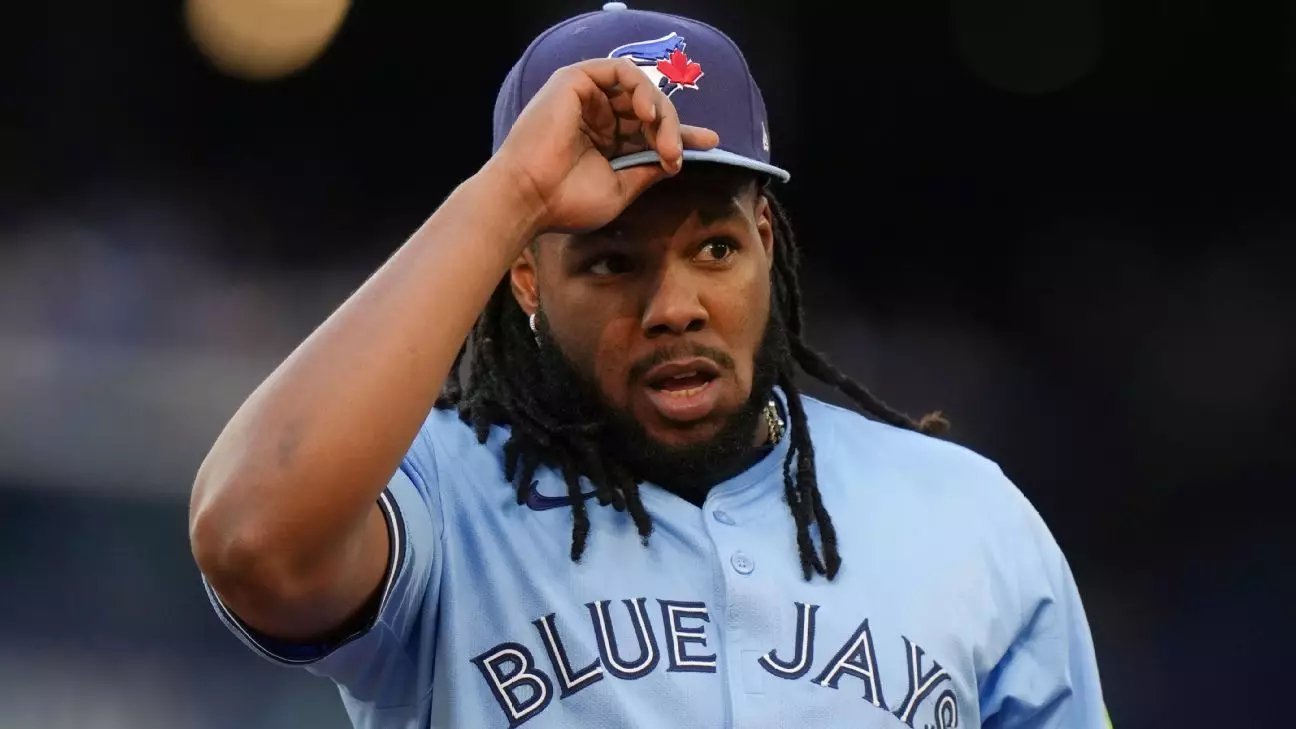The world of Major League Baseball (MLB) has always been defined by its intricate balance of financial negotiations, player development, and performance expectations. In recent years, the salary arbitration process has drawn significant attention due to its impact on player earning potential and team payroll strategies. The recent agreements reached by prominent players like Vladimir Guerrero Jr. and Framber Valdez reflect broader trends in the league and the ongoing negotiations that form a crucial aspect of MLB’s economic landscape.
Vladimir Guerrero Jr., a name that resonates both for his pedigree and on-field prowess, recently negotiated a one-year contract worth $28.5 million with the Toronto Blue Jays. This settlement not only highlights Guerrero’s standing among his peers but also exemplifies the escalating trend in player salaries, particularly during arbitration periods. His contract is significant, establishing him as a key figure in a league where financial negotiations often set precedents for future contracts.
In a similar vein, Framber Valdez of the Houston Astros secured an $18 million deal for the upcoming season. This demonstrates that even for pitchers—who may not always command the same salaries as star position players—there is an increasing recognition of their value on the roster. Salary arbitration is not just about numbers; it reflects the teams’ assessments of player contributions and market fluctuations.
A noteworthy trend this year is the continued rise in records established during arbitration negotiations. Tarik Skubal, the reigning American League Cy Young Award winner, received a salary of $10.15 million—an impressive figure given that he is still two years away from free agency. This emphasis on rewarding standout performances may suggest that teams are recognizing the need to lock in their best talents earlier, especially when they dominate the league, similar to Soto’s record-setting $31 million deal previously.
Players such as Guerrero and Juan Soto not only reshape individual team strategies but also influence how compensation structures evolve league-wide. As it stands, players earned more than six times the previous arbitration figures only a few seasons ago, marking a shift in how negotiations are perceived and conducted.
In total, 155 players were under arbitration eligibility this year, with many reaching agreements before the deadline. Yet, negotiations that fall through necessitate a hearing, as seen with players like Kyle Tucker and Jarren Duran, who are yet to finalize their contracts. Arbitration hearings serve as a critical reminder of the competitive nature of professional sports, where emotions can often overshadow the empirical value of a player’s on-field contributions.
Data from previous arbitration seasons suggest an evolving dynamic, where players achieved a record of 9-6 in hearings last winter, presenting a significant counterbalance to teams that historically dominated these negotiations. The majority of outcome swings favoring players indicates a progression toward greater equity in negotiations. Furthermore, the patterns of results suggest that teams must increasingly justify the caps they place on player salaries.
Despite the mounting evidence of player accolades driving negotiations, the journey is fraught with challenges, as highlighted by recent cases involving San Francisco’s J.D. Davis and Phil Bickford. Their outcomes emphasize the unpredictable nature of arbitration, where even successful cases can lead to financial intricacies that hurt teams in the aftermath.
As the landscape continues to evolve, the prospect of players maximizing their potential earnings has never been greater. Clubs may be forced to innovate in terms of contract structures and player evaluations to remain competitive. Ultimately, the trajectory of salary arbitration mirrors the larger narrative of professional sports: balancing the value of athleticism with sound economic strategy while ensuring that players are fairly compensated for their contributions.
The intersection of skill, contractual negotiations, and financial equity in MLB salary arbitration reflects an ongoing evolution within the sport. With each passing season comes the potential for further milestones and groundbreaking figures, positioning future stars to negotiate increasingly favorable terms while reshaping the financial framework of baseball as a whole.


Leave a Reply